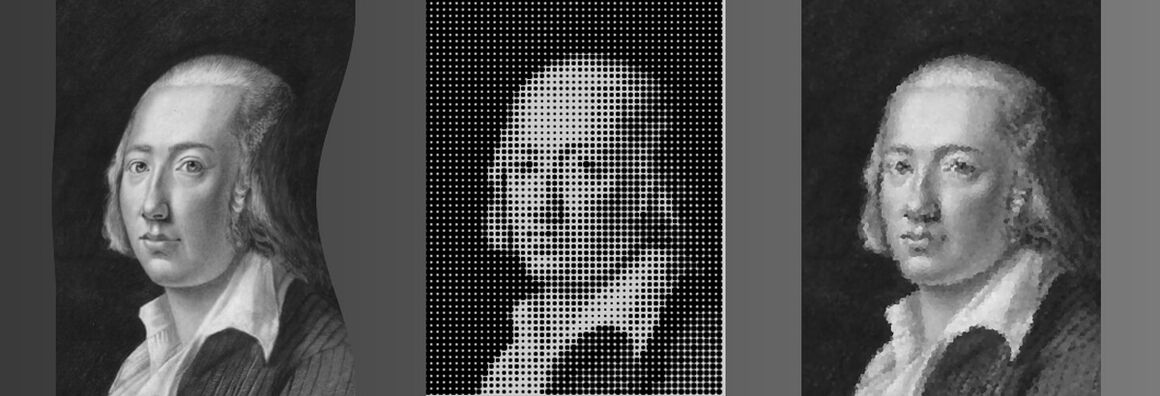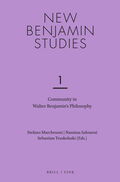
Gestures of Community: Reading Hölderlin with Benjamin, Landauer, and Rosenzweig
Walter Benjamin, Gustav Landauer, and Franz Rosenzweig’s engagement with Friedrich Hölderlin contains striking reflections on what might be meant by political community—especially during the last years of the German Kaiserreich, the upheavals of the First World War, and the volatile Weimar years. Their reformulations of notions of community are nourished by a unique confluence of social and historical factors. Hölderlin’s own so-called Hesperian turn has long been read as an expression of a certain national self-consciousness, a fact that garnered renewed importance during the first half of the 20th century (for instance in the praise that Hölderlin received by members of the George circle in the context of the late Wilhelmine Augusterlebnis, or in the National-Socialist valorization of the poet, which included vulgarized readings of Martin Heidegger’s formative seminars on Hölderlin from the 1930s). For Benjamin, Landauer, and Rosenzweig, by contrast, Hölderlin as a prophet of national renewal stood in tension with the dissolution of traditional poetic forms in his late writings. This dissolution gestures towards new forms of community beyond conventional conceptions of Volk and Nation—be it for the young Benjamin, whose 1915 essay Two Poems by Friedrich Hölderlin marked a break with the pro-war German student movement, the mature Landauer, who cited Hölderlin even during his involvement in the short-lived 1919 Munich Council Republic, or Rosenzweig, who referenced Hölderlin in his expressions of disappointment with the political developments of the Weimar era.
Hölderlin—who had himself written at a time when the concept of “Germanien” was being re-negotiated—became an opportunity for Benjamin, Landauer, and Rosenzweig to confront their own political present. Moreover, their readings were decisively shaped by each commentator’s ownhighly singular relationship to Judaism—a Judaism that, for its part, was characterized by an estrangement from traditional religious practices as well as a deep knowledge of German culture in the period around 1800.
By drawing on the reception of the poet Friedrich Hölderlin by German-Jewish commentators during the “short” 20th century, the project considered the role of literature within the reimagination of political community.
Fig. above: Franz Karl Hiemer: Friedrich Hölderlin (pastel 1792, original image), Source: Wikimedia
Publications
Community in Walter Benjamin’s Philosophy
Sebastian Truskolaski
- “Life of the Community”: Gustav Landauer Reads Friedrich Hölderlin, in: New German Critique 51 (2024), 79–104
Events
Sebastian Truskolaski: The Country Whose Seers Proclaim Their Visions Over Corpses: Hölderlin, Benjamin, Community
University of Vienna, Neues Institutsgebäude (NIG), conference room, 2nd floor, Universitätsstraße 7, 1010 Vienna
Sebastian Truskolaski: The Centre of All Relations: Hölderlin, Benjamin, Community
Kingston University London, PR JG 1002, Penrhyn Road campus, Penrhyn Road, Kingston upon Thames, Surrey KT1 2EE, UK
Sebastian Truskolaski: Adorno, Hölderlin and the Concept of Identity
Polish Academy of Sciences, Pałac Staszica, Nowy Świat 72, 00-330 Warszawa, Poland
Sebastian Truskolaski: Fanatismus der Versammlung: Zu Hölderlins “barocker” Spätzeit
University of Vienna, Schenkenstraße 8–10, 1010 Wien
Sebastian Truskolaski: “The Life of the Community”: Gustav Landauer Reads Friedrich Hölderlin
University of North Carolina, Chapel Hill / Duke University
Sebastian Truskolaski: Life of the Community: Gustav Landauer Reads Friedrich Hölderlin
Polnische Akademie der Wissenschaften, Pałac Staszica, Nowy Świat 72, 00-330 Warszawa, Polen
